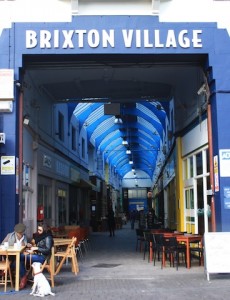By Kaye Wiggins

The deputy leader of Lambeth council has reassured residents that Brixton will continue to be a “vibrant” place for businesses, characterised by small firms and flexible working, as the borough as a whole develops into “London’s third central business district.”
At a council cabinet meeting last week, Cllr Jackie Meldrum outlined forecasts that 32,000 new jobs would be created in the borough in the next 20 years, with Waterloo, Vauxhall and Brixton as the three main areas for growth.
She said, however, that although northern parts of the borough could become “London’s third central business district” after the City and Canary Wharf, Brixton would retain its character.
“Brixton is a completely different place,” she said. “It’s not going to be a central business district. It’s a very flexible place, people are hot-desking and using cafes as offices, it’s a very vibrant centre where a lot of small businesses will work together.”
Cllr Meldrum outlined plans to hold a community consultation, starting this autumn, on how the council should encourage growth and how it should make sure the “social infrastructure” such as schools, housing, open space and health services was in place to cope with extra residents and businesses.
A report by the council described Brixton as having a “strong cultural and independent retail offer” and “potential for growth facilitated by the council as a major land owner.”
It said: “With further investment in education and cultural infrastructure, Brixton could be noted as one of London’s top locations for creative activities.”
Also at the meeting, councillors discussed setting a “community infrastructure levy,” a charge on new developments that could be used to fund improvements to roads, parks and health centres.
Cllr Lib Peck said developments in the south of the borough, including Brixton, would be charged less than those in northern areas such as Waterloo and Vauxhall. She said she was aware of concerns that this could “give people the feeling that they won’t see local spending as their area won’t have contributed as much to it.” However, she said this would not be the case.
She also said the charge would not deter developers because it was a relatively small amount. Under the council’s proposals, residential developments in Brixton would be charged £50 per square metre and those in Waterloo would be charged £369.



